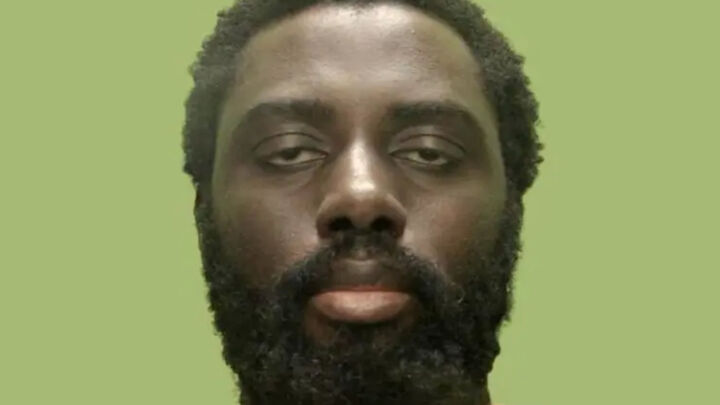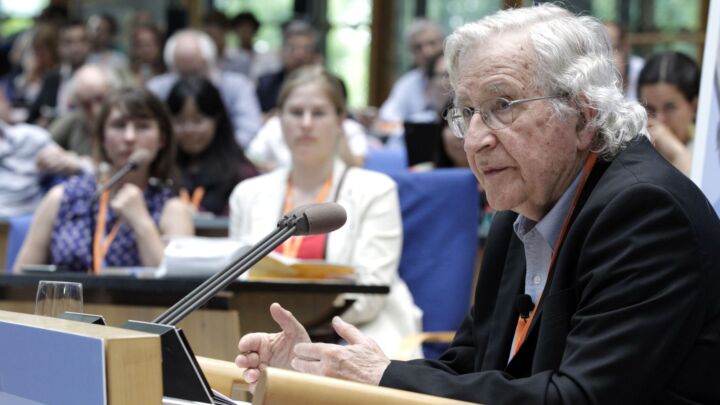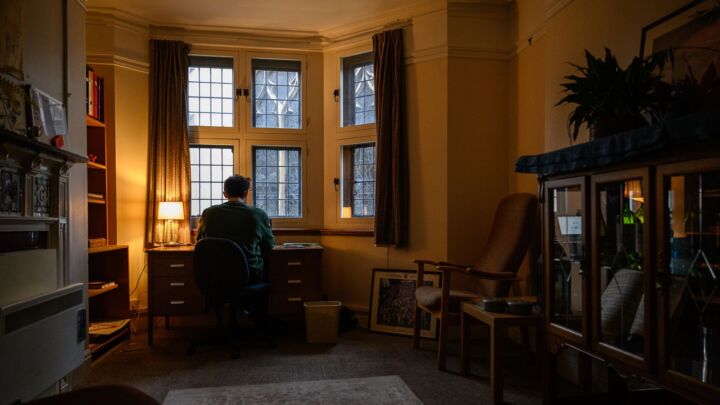The return of the blood libel
Anti-Semitic conspiracy theories have infested British universities.

Want unlimited, ad-free access? Become a spiked supporter.
An easy definition of anti-Semitism is treating Jews as though they are different from other people, whether that is holding them to different standards or discriminating against them. The same is true of the way Israel is treated. If you hold the one Jewish country in the world to different standards than other countries, or if you deny the Jewish people the right of self-determination, then you are anti-Semitic.
Using this base-level definition, it is clear that UK universities are infested with anti-Semitism. Examples of it abound. Last week, University College London (UCL) featured in national headlines after an academic was allegedly recorded preaching anti-Semitism in a speech to students. According to reports, Samar Maqusi, a former researcher at UCL and ex-employee for the UN’s aid agency for Palestinians, UNRWA, told a seminar that, in 1840, Jews killed a monk in Damascus and used his blood to make food for Passover. That anti-Semitic conspiracy theory was used to torture, displace and murder Jews in Syria and beyond. It is also alleged that Maqusi told students that ‘Jewish families’ ‘pretty much controlled’ international finance, and that Jews exercised the same level of control over the media.
To its credit, UCL acted swiftly against Maqusi. In recent days, UCL also announced that it had re-opened an investigation into a student who supported Hamas’s actions on 7 October 2023.
But UCL’s response to the surge in anti-Semitism stands in contrast to other British universities. Elsewhere, Jewish staff and students have reported incidents ranging from violence and damage to property, to bullying, harassment and exclusion. These have been well documented, and yet very little action has been taken against the perpetrators. A handful of students have been expelled, and only a few more suspended, for anti-Semitism. Silence on staff anti-Semitism has become complicity, giving free reign to direct and indirect discrimination against Jews and Zionists.
This has only become worse since the ceasefire in Gaza. Instead of ending their protests, agitators on UK campuses have ramped up their angry campaigns against Israel. They demand ‘de-Zionised’ universities – that is, institutions with no ties with Israel, Israelis, or anyone who supports or has connections with the Jewish State. Given that seven million of the world’s 15million Jews live in Israel, and that the vast majority of Jews around the world identify as Zionists, this is clearly a campaign to remove Jews from academic spaces.
The problem is not only the anti-Semitism that Jewish staff and students face. It is also the failure of many universities to acknowledge, let alone take action, against the perpetrators. It is left to Jewish staff and students to raise concerns time and again, while often being ignored altogether. Jews are the only minority group that is expected to fend for themselves against discrimination, harassment and violence.
The UCL blood-libel lecture was only exposed because a Jewish student attended and recorded the lecture, passed the recording to Stand With Us, an organisation that supports Jewish students on campus. It took concerted efforts from Jewish academics, the Union of Jewish Students and the Union of Jewish Chaplains to bring this matter to the attention of UCL.
We mustn’t allow Maqusi’s alleged remarks to be dismissed as a one-off, an aberration. Over the past two years, in universities across the UK, there have been many similar instances of Jew hatred. Just this week, it emerged that the rector at the University of Glasgow, Ghassan Abu-Sittah, accused Israel of harvesting the organs of dead Palestinians. Last month, Michael Ben-Gad, an Israeli professor of economics, was subjected to a campaign of grotesque anti-Semitic abuse by students at City St George’s, University of London.
British universities usually take proactive steps to protect minorities on campuses. This is not altruistic – indeed, it is their legal duty to do so. But when it comes to Jews they are failing. Failing to provide information, understanding and training on anti-Semitism. Failing to identify and address anti-Semitic speakers or events. Failing to take disciplinary action against anti-Semitic staff and students. And failing to take seriously, or even listen to, concerns and complaints raised about anti-Semitism.
It should not be left to Jewish staff and students alone to combat anti-Semitism in their places of work and study, but in many instances that is what is happening. Without concerted action across the sector, these protesters and agitators may well get their wish for Zionist-free campuses.
Rosa Freedman is a professor of Law, Conflict and Global Development at the University of Reading.
You’ve hit your monthly free article limit.
Support spiked and get unlimited access.
Support spiked and get unlimited access
spiked is funded by readers like you. Only 0.1% of regular readers currently support us. If just 1% did, we could grow our team and step up the fight for free speech and democracy.
Become a spiked supporter and enjoy unlimited, ad-free access, bonus content and exclusive events – while helping to keep independent journalism alive.
Monthly support makes the biggest difference. Thank you.









Comments
Want to join the conversation?
Only spiked supporters and patrons, who donate regularly to us, can comment on our articles.